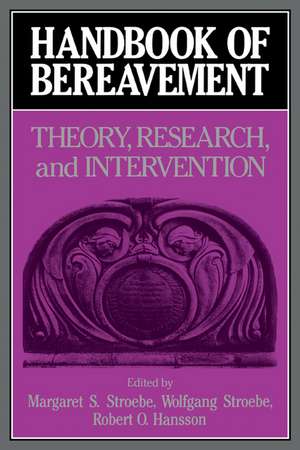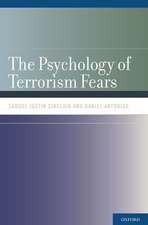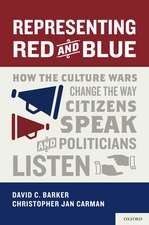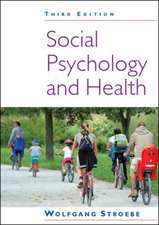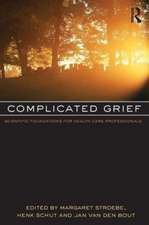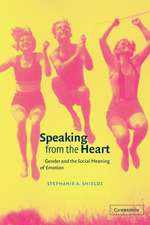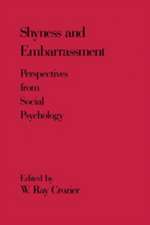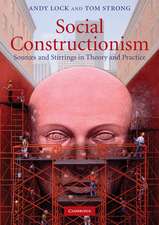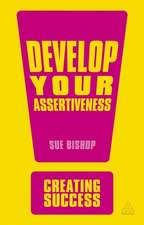Handbook of Bereavement: Theory, Research, and Intervention
Editat de Margaret S. Stroebe, Wolfgang Stroebe, Robert O. Hanssonen Limba Engleză Paperback – 25 mar 1993
| Toate formatele și edițiile | Preț | Express |
|---|---|---|
| Paperback (1) | 569.32 lei 6-8 săpt. | |
| Cambridge University Press – 25 mar 1993 | 569.32 lei 6-8 săpt. | |
| Hardback (1) | 1220.89 lei 6-8 săpt. | |
| Cambridge University Press – 25 mar 1993 | 1220.89 lei 6-8 săpt. |
Preț: 569.32 lei
Preț vechi: 639.68 lei
-11% Nou
Puncte Express: 854
Preț estimativ în valută:
108.97€ • 118.41$ • 91.60£
108.97€ • 118.41$ • 91.60£
Carte tipărită la comandă
Livrare economică 21 aprilie-05 mai
Preluare comenzi: 021 569.72.76
Specificații
ISBN-13: 9780521448536
ISBN-10: 0521448530
Pagini: 562
Dimensiuni: 156 x 235 x 29 mm
Greutate: 0.76 kg
Editura: Cambridge University Press
Colecția Cambridge University Press
Locul publicării:New York, United States
ISBN-10: 0521448530
Pagini: 562
Dimensiuni: 156 x 235 x 29 mm
Greutate: 0.76 kg
Editura: Cambridge University Press
Colecția Cambridge University Press
Locul publicării:New York, United States
Cuprins
Part I. Introduction: 1. Bereavement research and theory: an introduction to the Handbook Margaret S. Stoebe, Wolfgang Stroebe, and Robert O. Hansson; Part II. The Phenomenology and Measurement of Grief: 2. The course of normal grief Stephen R. Shuchter, and Sidney Zisook; 3. Pathological grief reactions Warwick Middleton, Beverly Raphael, Nada Martinek, and Vivienne Misso; 4. Measurement issues in bereavement Robert O. Hansson, Bruce N. Carpenter, and Sharon K. Fairchild; Part III. Current Theories of Grief, Mourning, and Bereavement: 5. Grief as an emotion and as disease: a social-constructionist perspective James R. Averill, and Elma P. Nunley; 6. Bereavement as a psychosocial transition: processes of adaptation to change Colin Murray Parkes; 7. Grief: the social context of private feelings Paul C. Rosenblatt; 8. Bereavement from the perspective of cognitive-experiential self-theory Seymour Epstein; Part IV. Physiological Changes Following Bereavement: 9. Biobehavioral consequences of loss in nonhuman primates: individual differences Mark L. Laudenslager, Maria L. Boccia, and Martin L. Reite; 10. Neuroendocrine changes following bereavement Kathleen Kim, and Selby Jacobs; 11. Bereavement, depressive symptoms, and immune function Michael Irwin, and Jennifer Pike; Part V. The Psychological, Social, and Health Impacts of Conjugal Bereavement: 12. The mortality of bereavement: a review Margaret S. Stroebe, and Wolfgang Stroebe; 13. Psychological resilience among widowed men and women: a 10-year follow-up of a national sample Robert R. McCrae, and Paul T. Costa, Jr; 14. Determinants of adjustment to bereavement in younger widows and widowers Wolfgang Stroebe, and Margaret S. Stoebe; 15. The impact of spousal bereavement on older widows and widowers Dolores Gallagher-Thompson, Andrew Futterman, Norman Farberow, Larry W. Thompson, and James Peterson; 16. The course of spousal bereavement in later life Dale A. Lund, Michael S. Caserta, and Margaret F. Dimond; 17. Risk factors in bereavement outcome Catherine M. Sanders; Part VI. Grief Reactions to Different Types of Loss: 18. Loss and recovery Robert S. Weiss; 19. The death of a child is forever: the life course impact of child loss Simon Shimshon Rubin; 20. Children's reactions to the death of a parent Phyllis R. Silverman, and J. William Worden; 21. Bereavement following death from AIDS: unique problems, reactions, and special needs John L. Martin, and Laura Dean; 22. Sleep and dreams in well-adjusted and less adjusted Holocaust survivors Hanna Kaminer, and Peretz Lavie; Part VII. Coping, Counseling, and Therapy: 23. The meaning of loss and adjustment to bereavement Camille B. Wortman, Roxane Cohen Silver, and Ronald C. Kessler; 24. Old age and widowhood: issues of personal control and independence Robert O. Hansson, Jacqueline H. Remondet, and Marlene Galusha; 25. The support systems of American urban widows Helena Znaniecka Lopata; 26. The role of social support in bereavement Stanley K. Stylianos, and Mary L. S. Vachon; 27. Bereavemnet self-help groups: a review of conceptual and methodological issues Morton A. Lieberman; 28. Counseling and therapy of the bereaved Beverly Raphael, Warwick Middleton, Nada Martinek, and Vivienne Misso; Part VIII. Conclusions: 29. Contemporary themes and controversies in bereavement research Margaret S. Stroebe, Robert O. Hansson, and Wolfgang Stroebe.
Recenzii
"The reader of this book may be tempted--and rightly so--to call it the most comprehensive, thorough, and authoritative volume written on the subject in many years....Research design is particularly crucial, with sample selection, measures, instruments, biases, the main effects-interactions dilemma, and the heterogeneity of the concommitant psychopathology being outstanding issues." Renato D. Alarcon, Journal of Nervous and Mental Disease
"...an important resource in finding that understanding balance between objectivity and experience." Ann Weber, Contemporary Psychology
"...a scholarly and comprehensive work which accomplishes the editors' stated objective...a worthwhile resource for bereavement issues and concerns." Cathy Coyle, Social Work in Health Care
"...a unique, research-based volume which provides readers with an up-to-date account of knowledge about bereavement's impact, and its emotional, physical, and social effects....Drawing on the work of leading researchers from around the world, the Handbook of Bereavement is a scholarly volume which presents cutting edge information about the nature and consequences of this deeply personal experience." Noetic Sciences Review
"The editors are to be commended for the quality of the contributions they solicited and assembled....The book is mandatory reading for individuals desiring a thorough coverage of the current knowledge in the field of bereavement. Although advanced in its treatment of topics, I would recommend this handbook as a starting point for anyone interested in the field of thanatology. The critical analyses offered by the various contributors move the reader beyond a superficial understanding of the material. In a field in which the literature often appears to be part of a maze with few connecting points, Stroebe and her colleagues provide a valuable template for conceptualizing and interpreting additional material that the reader may encounter." Alicia Skinner Cook, source????
"...an important resource in finding that understanding balance between objectivity and experience." Ann Weber, Contemporary Psychology
"...a scholarly and comprehensive work which accomplishes the editors' stated objective...a worthwhile resource for bereavement issues and concerns." Cathy Coyle, Social Work in Health Care
"...a unique, research-based volume which provides readers with an up-to-date account of knowledge about bereavement's impact, and its emotional, physical, and social effects....Drawing on the work of leading researchers from around the world, the Handbook of Bereavement is a scholarly volume which presents cutting edge information about the nature and consequences of this deeply personal experience." Noetic Sciences Review
"The editors are to be commended for the quality of the contributions they solicited and assembled....The book is mandatory reading for individuals desiring a thorough coverage of the current knowledge in the field of bereavement. Although advanced in its treatment of topics, I would recommend this handbook as a starting point for anyone interested in the field of thanatology. The critical analyses offered by the various contributors move the reader beyond a superficial understanding of the material. In a field in which the literature often appears to be part of a maze with few connecting points, Stroebe and her colleagues provide a valuable template for conceptualizing and interpreting additional material that the reader may encounter." Alicia Skinner Cook, source????
Descriere
Focusing on methodologically sound, theoretically oriented, and empirically derived knowledge, the authors provide a structured framework for researchers and practitioners.
